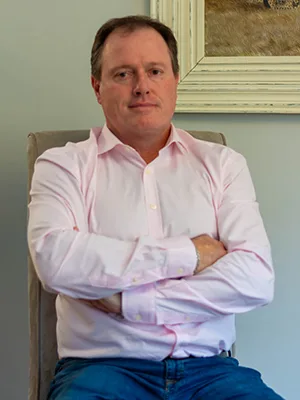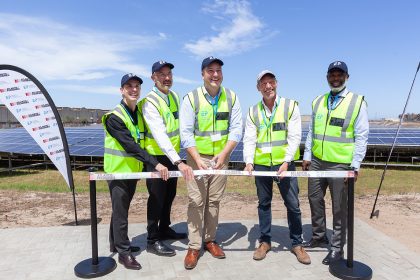Across Africa, the continent is struggling to contend with numerous barriers to financial inclusion. Brett Sievwright, CEO of Platcorp Holdings, considers this troubling conundrum.
THE FRONT LINE OF FINANCIAL INCLUSION
Imagine trying to save for your children’s school, starting a business, buying a vehicle, or trying to make improvements to your home without access to any financial institutions.
That’s the reality for over 350 million adults living in Africa who are financially excluded.
In a world where the challenges to sustainable development loom large, it is imperative businesses take a lead in advancing the UN’s Sustainable Development Goals (SDGs).
The UN has underscored the urgency of such investment, estimating an annual funding gap of USD$200 billion in Africa alone.
The financial exclusion of adults in Africa remains a key barrier to the alleviation of poverty and promotion of sustainable development.
However, there remain several strategies and opportunities that investors, FinTech firms, and traditional banks should pursue to promote financial inclusion in Africa whilst achieving returns on their investments.
WHY MILLIONS REMAIN FINANCIALLY EXCLUDED IN AFRICA
The UN defines financial inclusion as universal access, at a reasonable cost, to a wide range of financial services, provided by a variety of sound and sustainable institutions. To address the barriers to financial inclusion, we must first understand why it’s happening.
One of the major barriers is a lack of legal identification. Despite approximately 540 million individuals in Africa lacking a form of legal identity, the majority of financial institutions across the continent still ask for proof of ID to open an account.
Whilst this may seem straightforward in many corners of the globe, this is not the case in Africa. The requirement for physical proof of ID instantly excludes a significant portion of the population from accessing traditional finance.
Digital innovation, led by FinTech firms, is proving to be a key driver of closing the financial inclusion gap through enhanced data integrity and streamlined service delivery for people looking to access the system.
However, with only 36 percent of Africans having access to a stable internet connection, the gap is not closing easily.
Even for those able to provide the appropriate identification to access the system, financial literacy remains a key barrier. In sub-Saharan Africa alone, less than a third of the population is considered financially literate.
This means many trying to access the financial system lack the understanding or confidence to use financial products, making them less likely to engage. Moreover, the products available to people are often expensive, inflexible, and not designed for low-income or irregular earners.
Financial exclusion is the most pronounced across women and youth in Africa. Cultural norms, lower financial literacy rates, and a lack of asset ownership limit many women’s ability to open accounts, secure loans, or build financial independence.
Young people largely work in the informal economy, meaning they don’t receive regular salaries or pay taxes and lack official employment records to prove creditworthiness to traditional financial institutions.
Whilst these barriers are significant, there are several strategies that can make a difference. Importantly, there are investment opportunities through micro, small, and medium-sized enterprises (MSMEs) that will create returns for investors whilst promoting financial inclusion in Africa.

HOW MSME INVESTMENT UPLIFTS COMMUNITIES AND CLOSES THE FINANCIAL INCLUSION GAP
According to research, small and medium-sized enterprises (SMEs) account for 95 percent of all registered businesses in sub-Saharan Africa, whilst further research has shown MSMEs account for 90 percent of all businesses worldwide.
MSMEs are widely accepted as an essential driver of socioeconomic growth and development, particularly in emerging markets like Africa.
Despite their important role, MSMEs are often locked out of traditional finance systems due to a lack of asset ownership and collateral, credit history, and formal registration.
HOW INVESTING IN MSMES DRIVES FINANCILA INCLUSION FOR RECIPIENTS
MSME investment in Africa creates financial inclusion from the ground up by providing access to capital at the local level, where it is often needed most and recipients are most likely to be financially excluded.
Whether it’s investing in farmers to allow them to implement improved sustainable farming practices like silage production and terracing, or investing in a local entrepreneur looking to expand their business of selling fruit to locals on the side of the road, capital will be put directly into the hands of those who need it the most.
A large proportion of MSME owners in Africa are women, young people, and informal workers – the exact groups who remain highly financially excluded. By designing products around their needs, financial providers and investors can create a ripple effect by enabling growth, generating employment, strengthening economies, and allowing financially excluded people to access the system, develop credit history, and open accounts.
Whilst the opportunity for investment and economic growth is massive, given the low financial literacy rates, investors must approach opportunities ethically and with caution. Responsible financial institutions must carry out risk assessments to ensure the loans issued pose low risks to the clients and safeguard them from over-indebtedness.
UNLOCKING AFRICA’S FULL POTENTIAL WITH INVESTMENT AND COLLABORATION
The demand for financial inclusion in Africa has given rise to a new generation of financial providers focused on breaking down barriers to access. Despite these efforts, financial exclusion rates in Africa remain high and are a barrier to sustainable development and poverty alleviation.
To help inflict change across the continent and promote financial inclusion, institutions and investors must work together to build an inclusive system that meets people where they actually are, not where the system assumes they should be. Only then can we unlock Africa’s full economic potential and ensure no one is left behind.





























